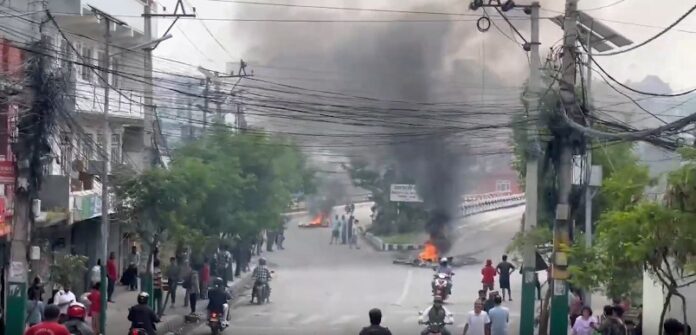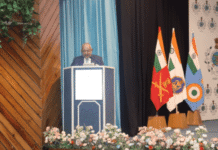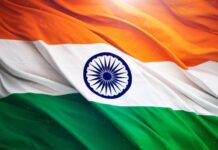India has issued an advisory urging its nationals in Nepal to exercise caution as violent protests in the Himalayan nation entered their second day, leaving at least 19 people dead and hundreds injured. The Ministry of External Affairs (MEA) said it was closely monitoring the situation, expressing sorrow over the loss of young lives in the unrest sparked by a nationwide ban on social media platforms.
The MEA, in a statement released on Tuesday morning, extended condolences to the bereaved families and wished a speedy recovery to those injured. “We are closely monitoring the developments in Nepal since yesterday and are deeply saddened by the loss of many young lives. Our thoughts and prayers are with the families of the deceased,” it said, while urging all sides in Nepal to exercise restraint and resolve differences through dialogue.
The advisory comes as thousands of young demonstrators, many in school and college uniforms, defied curfews in Kathmandu and other cities, voicing anger over restrictions on free expression and deepening corruption. The ban covered 26 platforms, including Facebook, WhatsApp, Instagram, Snapchat, Reddit, and WeChat. Although the ban was lifted late Monday, protests continued, with demonstrators demanding accountability from the government of Prime Minister KP Sharma Oli.
Reports confirmed the use of live ammunition, rubber bullets, and teargas by police to disperse crowds, triggering global concern. The United Nations called for calm, with Secretary-General António Guterres urging dialogue between the government and demonstrators. A spokesperson for the Geneva-based Office of the High Commissioner for Human Rights (OHCHR), Ravina Shamdasani, said there were “deeply worrying allegations of unnecessary or disproportionate use of force” and called for a transparent investigation.
Prime Minister Oli, facing growing pressure as resignations pile up within his Cabinet, expressed “deep sorrow” over the deaths and announced a high-level probe into the violence. “I extend my deepest condolences to the families and relatives who lost their loved ones in this unimaginable incident,” he said.
The turmoil has not only strained Nepal’s internal stability but also triggered ripples across the border in India’s eastern states, particularly West Bengal, where tour operators are grappling with fears of cancellations ahead of the festive season.
Samar Ghosh, chairman of the Association of Tourism Service Providers of Bengal, said tour operators were already receiving calls from anxious travellers looking to cancel or reschedule their trips. “Many people are concerned about their safety and security. If the situation continues, then they will be forced to cancel their bookings. The peak season to visit Nepal is from November to January, so any cancellations will mean huge losses,” he said.
Some operators are offering tourists the option of postponing their Puja vacation bookings to later in the winter season, hopeful that the unrest will subside. A member of the Himalayan Hospitality and Tourism Development Network noted that Bengali tourists had been flocking to Nepal in record numbers in recent years, but inquiries had virtually stopped since Monday’s violence.
The tourism sector in Bengal, which shares an open border with Nepal, has seen a growing flow of Indian visitors to the neighbouring country. This year has seen strong booking trends, but the ongoing crisis threatens to derail those gains.
For now, Indian authorities are advising travellers to remain vigilant and follow Nepali government guidelines as the Oli administration confronts one of its most severe political challenges in recent years. With curfews, protests, and international scrutiny mounting, Nepal’s path back to stability remains uncertain.






